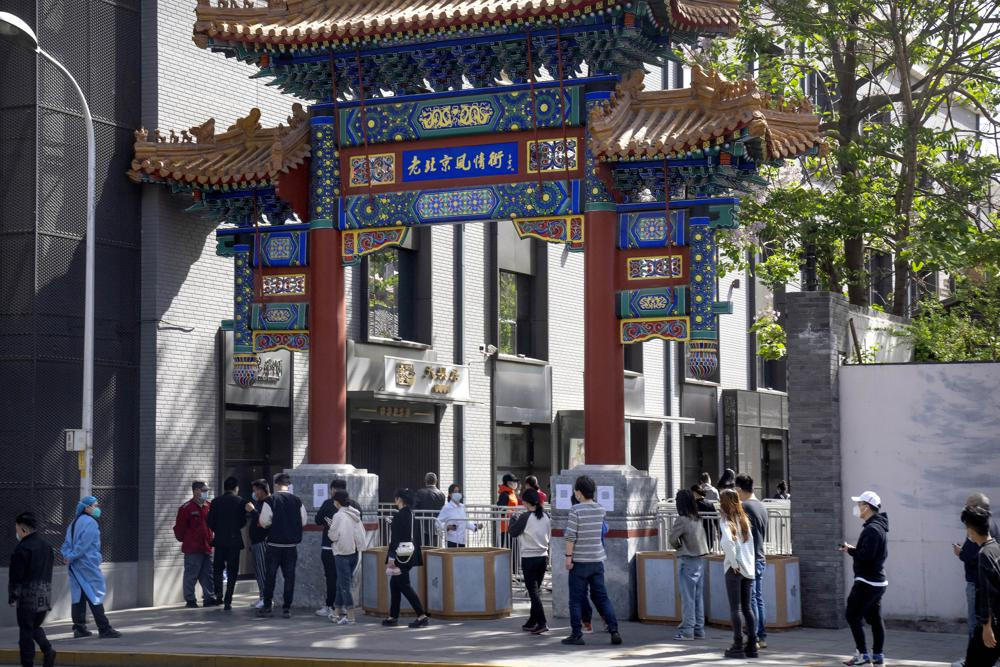China’s capital Beijing is enforcing mass testing and closing down access to neighborhoods as it seeks to contain a new COVID-19 outbreak.
Announcement of the testing had sparked panic buying in the city of 21 million on Monday, but the situation appeared to calm on Tuesday with public transport largely keeping to normal schedules and roads packed with commuters.
Fears of total lockdown have been fed by disruptions in the supply of food, medicine and daily necessities in the southern business hub of Shanghai, where 25 million residents have only gradually been allowed to leave their homes after three weeks of confinement.
However, 86-year-old Beijing resident Chen Shengzhen said the capital had been given more time to prepare than its southern cousin.
Shanghai’s lockdown “came all of a sudden, so the policies and other aspects were not able to be in place,” leading to short-term hardships in the city, Chen told AP Television News.
“My daughter works in a government department and they have prepared very well, such as beds, quilts, and articles for women’s use. Even if we need to go into lockdown, we will be fine,” said Chen.
Shanghai, which has been locked down for more than two weeks, reported more than 19,000 new infections and 51 deaths in the latest 24-hour period.
Zhang Yifan, who works in aviation industry, said he refused to stockpile food because he didn’t want to worsen supply shortages.
Zhang said he backed the government’s strict testing, quarantine and masking measures because they “managed to keep the outbreaks to a controllable degree.”
“Mass testing is a very effective measure and I will cooperate with the government,” Zhang said.
Beijing health officials said 33 positive cases were identified on Monday, including one asymptomatic case.
The city has ordered mass testing across sprawling Chaoyang district, where 46 of the cases have been found. The 3.5 million residents of Chaoyang, as well as people who work in the district, need to be tested on Monday, Wednesday and Friday.
The cities of Anyang in central China, Dandong on the border with North Korea and Baotou in Inner Mongolia have also started lockdowns, as the omicron variant of the coronavirus spreads.
Shanghai residents have turned to group-buying food and other supplies, relying mainly on outlets offering services online. Goods have backed up at Shanghai’s port, affecting factory production, global supply chains and China’s own economic growth.
Beijing locked down residents in an area about 2 by 3 kilometers (1 by 2 miles), telling them to work from home and stay in their residential compounds. It wasn’t a total lockdown but stadiums, sports fields, cinemas, karaoke bars and other entertainment venues were ordered closed.
Elsewhere, the city also shut down some or all buildings in five residential compounds, adding to others that have been locked down for two days. Beijing has recorded 80 cases in the most recent wave, while Shanghai has seen more than 300,000 cases and 190 deaths this month.

